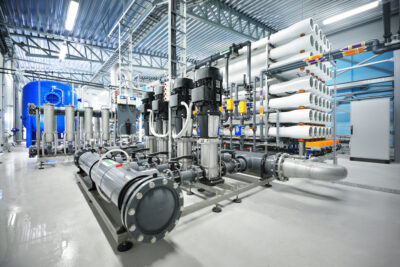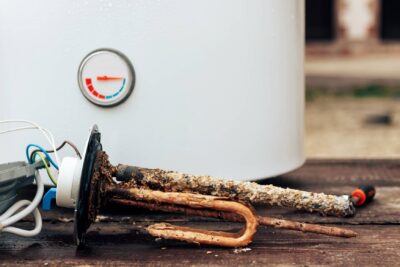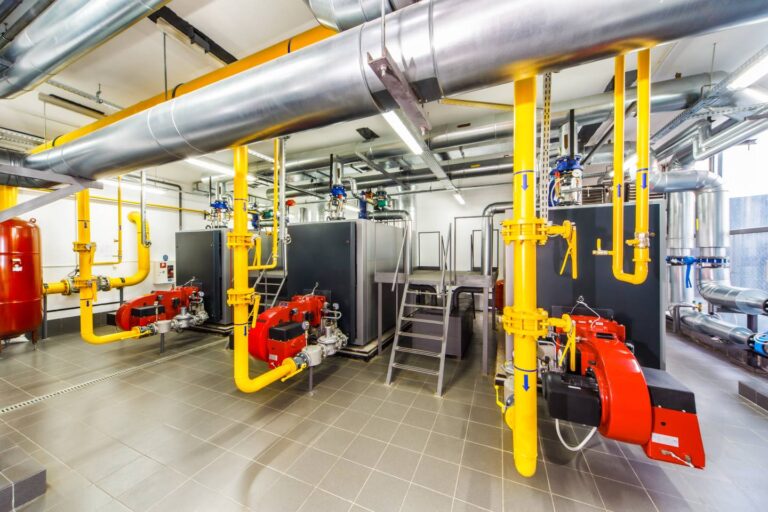Introduction to Industrial Water Boilers
Industrial water boilers play a crucial role in various sectors, providing the necessary heat and steam required for numerous industrial processes. These boilers are designed to handle large volumes of water, heating it to produce steam or hot water that is used in heating systems, power generation, and many other applications. In this article, we will explore the different types of industrial water boilers, their applications, and key considerations for selecting and maintaining these vital pieces of equipment.
Types of Industrial Water Boilers
There are several types of industrial water boilers, each designed for specific applications and operational needs. The most common types include:
- Fire-Tube Boilers: Fire-tube boilers are among the oldest and most commonly used types of industrial boilers. In this design, hot gases produced by combustion pass through tubes that are surrounded by water. The heat from the gases is transferred to the water, generating steam. Fire-tube boilers are known for their simplicity, durability, and ease of operation, making them suitable for smaller industrial operations.
- Water-Tube Boilers: Water-tube boilers are more complex and are typically used in larger industrial applications. In this design, water circulates through tubes that are heated externally by combustion gases. Water-tube boilers are capable of producing high-pressure steam, making them ideal for power generation and other heavy-duty industrial processes. They offer better efficiency and safety compared to fire-tube boilers but require more advanced maintenance.
- Electric Boilers: Electric boilers use electrical energy to heat water, eliminating the need for combustion. They are highly efficient and produce no emissions, making them an environmentally friendly option. Electric boilers are commonly used in industries where clean and quiet operation is essential, such as in the food and beverage industry or in laboratories.
- Biomass Boilers: Biomass boilers use organic materials like wood chips, agricultural waste, or other renewable resources as fuel. They are an eco-friendly alternative to traditional fossil fuel-based boilers. Biomass boilers are gaining popularity in industries that are looking to reduce their carbon footprint and make use of renewable energy sources.
Applications of Industrial Water Boilers
Industrial water boilers are used in a wide range of applications, including:
- Power Generation: In power plants, boilers are used to generate steam that drives turbines, producing electricity. Water-tube boilers are particularly common in this application due to their ability to handle high pressures and temperatures.
- Chemical and Petrochemical Industries: Boilers provide the necessary heat for chemical reactions, distillation, and other processes in the chemical and petrochemical industries. The reliability and efficiency of the boiler are critical for maintaining consistent production.
- Food and Beverage Industry: In the food and beverage industry, boilers are used for processes such as sterilization, pasteurization, and cooking. Electric and biomass boilers are often preferred in this industry due to their clean operation and low emissions.
- Textile Industry: Boilers provide the steam required for dyeing, drying, and other textile manufacturing processes. Consistent and reliable steam supply is essential for maintaining product quality in the textile industry.
- Pharmaceutical Industry: The pharmaceutical industry relies on boilers for processes such as sterilization, heating, and distillation. The high standards of cleanliness and precision in this industry make electric boilers a popular choice.
Key Considerations for Selecting an Industrial Water Boiler
When selecting an industrial water boiler, several factors must be considered to ensure it meets the specific needs of your operation:
- Capacity and Output: The boiler’s capacity must match the demand for steam or hot water in your facility. It’s important to consider both current and future needs to avoid under-sizing or over-sizing the boiler.
- Fuel Type: The choice of fuel—whether it’s natural gas, oil, biomass, or electricity—will impact operating costs, environmental compliance, and boiler efficiency. Evaluate the availability and cost of fuel in your region before making a decision.
- Efficiency: Boiler efficiency is a critical factor that directly affects operating costs. Look for boilers with high efficiency ratings, as they will consume less fuel and reduce emissions. Consider options like condensing boilers, which recover heat from exhaust gases to improve efficiency.
- Maintenance Requirements: Regular maintenance is essential for the safe and efficient operation of industrial boilers. Consider the complexity of maintenance procedures and the availability of service support when selecting a boiler. Some types of boilers require more frequent and specialized maintenance than others.
- Environmental Regulations: Compliance with environmental regulations is a key consideration, especially in industries with strict emissions standards. Boilers that use clean-burning fuels or incorporate emissions control technologies can help meet regulatory requirements and reduce the environmental impact of your operations.
Maintenance and Safety Considerations
Proper maintenance and safety practices are essential for the longevity and safe operation of industrial water boilers. Key maintenance tasks include:
- Regular Inspections: Routine inspections help identify potential issues before they lead to costly breakdowns. Inspections should focus on the boiler’s pressure vessels, burners, and safety controls.
- Water Treatment: Proper water treatment is crucial to prevent scaling, corrosion, and fouling, which can reduce boiler efficiency and lead to equipment failure. Regular monitoring and adjustment of water chemistry are necessary to maintain optimal performance.
- Safety Checks: Safety devices such as pressure relief valves, low-water cutoffs, and flame detectors must be tested regularly to ensure they function correctly. These checks are vital for preventing accidents and ensuring compliance with safety regulations.
- Training for Operators: Boiler operators should be properly trained in the operation, maintenance, and safety procedures for the specific type of boiler they are managing. Ongoing training helps keep operators updated on best practices and new technologies.
Conclusion
Industrial water boilers are indispensable in many industries, providing the heat and steam needed for a wide range of processes. Understanding the different types of boilers, their applications, and key considerations for selection and maintenance is crucial for ensuring efficient and safe operation. By carefully evaluating your needs and investing in a well-maintained boiler, you can achieve reliable performance, reduce operational costs, and minimize environmental impact.







